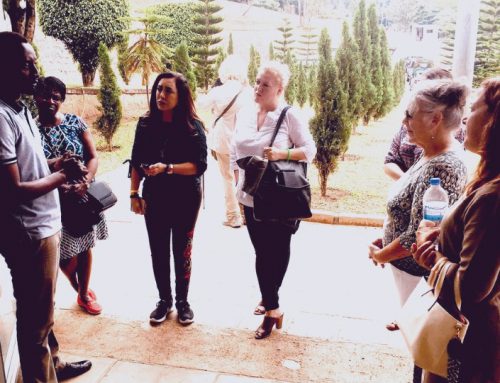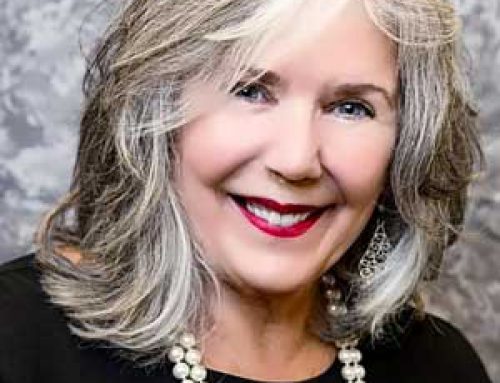I thought I was dreaming. But as I scrambled to gather up the pancake fixings I had dropped in the shock of the moment, I realized that I had in fact just heard the Bluetooth-clad woman in front of me apologize. She actually pulled the headset out of her ear and told the grocery cashier she was sorry for being rude in answering her cell phone in the middle of the transaction. I couldn’t believe it. Courtesy in the grocery store… and on a weekend morning, wow!
Then it occurred to me that I hadn’t endured the typical honking and swearing in the parking lot on the way in either. And not even once did I have to move some self-absorbed, grouchy shopper’s cart out of the middle of the aisle so I could pass. A couple of stranger’s had even made direct eye contact and said good morning as we all navigated the crowded sampling stations.
I smiled to myself as I recalled the kind man who, about a week before, let my daughter and I go ahead of him at the movie ticket booth. (He had observed my 8 year old’s meltdown over our being late for her little friend’s birthday party). And, surprisingly, that same little friend had actually sent out thank you cards for the gifts she’d received at the party- a memorable act as thank you cards are not a common occurrence these days. What was going on, and why hadn’t I noticed this courteous social shift before now?
Could it be that Canadians have more than maple syrup coursing through their veins? Were my American friends and European clients correct in saying that courtesy is a “Canadian thing”; that manners are in our blood and a natural part of being Canadian? Was it true that Canadians are for the most part thoughtful and kind and that maybe our world-wide reputation for being well-mannered is well-deserved?
Based on my recent experiences, I’d say “YES”, but a recent Angus Reid study showed that unfortunately we’re not all so nice all of the time.
In spite the fact that civilized conduct seems to be highly valued, the survey showed that Canadians do not appear to be incorporating society’s esteemed code in their daily lives. In fact:
- Sixty-five per cent (65%) of Canadians say they witness lack of common courtesies on a regular basis, such as saying please, thank you or hello;
- More women (41%) than men (29%) report witnessing rude commuters on a regular basis;
- Fifty-nine per cent (59%) of respondents complain of regular exposure to road rage, such as tailgating and cutting off other drivers; and
- Fifty-four per cent (54%) of respondents report witnessing technology abuse regularly, such as the use of cell phones and PDAs during meetings or while on a date.
Still, I’d argue that in many countries people wouldn’t wait politely for the light to change to cross the street- even when it’s -40 and there’s no car in sight for blocks? And in other parts of the world you wouldn’t hear “Sorry” or “Excuse me” if someone bumped into you on the subway? Some of my well-travelled friends and out-of-country visitors suggest that there are many examples of Canadian courtesies not often experienced elsewhere, such as:
- Canadians are neighbourly; they will shovel their neighbour’s walks without being asked and expect no favor in return. They won’t let their dog poop on someone else’s lawn, and they’ll automatically turn down their music at 11pm.
- Canadians are the sort who would put a coin in someone else’s parking meter if they see it is expiring.
- Most Canadians understand that eye contact and a handshake goes a long way.
- They remember to say please and thank you, and they wait their turn in line.
- It’s the little things Canadians do, like following what some people see as old-fashioned rules; taking their shoes off at the door, not showing up empty-handed when they’re guests, clean up after themselves, being respectful of other people’s property and tipping….Canadians are great tippers!
- Canadians for the most part are open-minded and welcoming, they embrace differences, and are kind to newcomers; they’re likely to offer to help a stranger who is lost or struggling with luggage etc.
- Canadians apologize when someone else makes a mistake, e.g., “I’m sorry but you’ve overcooked my steak”.
As the leading civility expert in Canada for the past 12 years, I am pleased to state for the record that I believe that Canadians are paying closer attention to their manners. I believe that increasingly, Canadians are acknowledging civility when they experience it and that they are reciprocating in-kind. I believe that we are starting to better understand the impact of rudeness to our health, to our relationships, to service standards, and to the overall quality of our lives. And, I believe that the three core elements of civility; practicing restraint, showing respect, and taking responsibility, (Dr. P. Forni/Choose Civility) do accurately describe the character of most Canadians. I am Canadian and I am proud to be polite.





